PDF Download: “Work Better Together: 10 Best Practices For Your Family Business Success”
PDF Download: “Building Accountability and Trust 1 of 2 (Info Sheet)”
PDF Download: “Building Accountability and Trust 2 of 2 (Worksheet)”
PDF Download: “Gaining Awareness of Patterns in the System (OAR)”
PDF Download: “Keys to Better Family Business Decision Making (ACAAR)”
PDF Download: “Working With Family Info Sheet (ACAAR)” Print on Legal Size
PDF Download: “Quality of Decision Making in Family Business”
PDF Download: “Core Values: What Are Your Core Values? 1 of 2”
PDF Download: “Core Values Worksheet 2 of 2”
PDF Download: “Leadership Transition (The 4 Means of Messaging)”
PDF Download: “Wealth Transition (The 4 Means of Messaging)”
PDF Download: “Leadership Transitions: Providing Challenge & Support”
PDF Download: “The Three Circle Model Of The Family Business System”
PDF Download: “SWOT Analysis”
PDF Download: “Family Business Vision and Values List of 246 Core Values 1 of 2”
PDF Download: “Family Business Vision and Values Statement Worksheet 2 of 2”
PDF Download: “Polarity Map”
PDF Download: “The Cycle of Socialization By Bobbie Harro”
PDF Download: “Repairing Broken Promises in Family Business”
PDF Download: “The Eight Concepts of Bowen Theory”
Frequently Asked Questions:
1 – What is the definition of a family business?
Anytime two members of the same family- either by marriage or biology – work at, co-own or are financial partners in a business concern, it is a family business. Often time some members of the family work at the business while others own a share but may not be engaged with day to day operations of the business. Family relationships can be any combination of a spouse, parent, child, sibling cousin, uncle, aunt, grandparent, step or half-siblings count as well.
2 – Are family businesses common place in our economy?
Yes, in fact, family businesses make up about 80% of US based businesses and employ about 60% of our workforce. They are a significant contributor to our GDP.
3 – Is it a good idea to start a family business?
Yes, if you’re thinking about it, it’s worth exploring further. Family entrepreneurship is a powerful way to build wealth as well as a legacy for future generations.
4 – What kinds of things are important to consider before going into business with my cousin or sibling and how can I determine if we would work well together.
I would say, start by working through this short list below. Most people start by buying their business or setting up their LLC. Instead, I would recommend spending a lot of time and energy on the details listed below. If working these points out is hard, I might suggest that it will only get harder with more at stake.
- Legal documents that outline investments and roles of each partner
- Specific written long term goals for the business
- Clarity on how a family member can exit a business
- Alignment on values, vision and mission
- Agreement on business’ internal norms and culture
- Standards, systems and process for communication and accountability.
5- What kinds of problems arise when multi-generational family members work together or for one another?
As you can imagine the range of issues that arise are as broad and varied the families that encounter them. However, they do tend to fall within the following categories.
- Boundaries – How to identify and maintain healthy ones
- Childhood Grievances – What might need to be cleared?
- Family Dynamics – A deep look at the system and its patterns
- Family First or Business First – Which do your family values prioritize?
- Equal vs Fair – They are not the same, each family sees it differently.
- Artificial Harmony – Conflict can be healthy, avoiding it is not.
- Unconditional Belonging (family) vs Productive Value (business) – This is a big one, business families are often tied first by the business and as a result those who don’t, or don’t want to, work at the family business often feel an outsider and lose the sense of belonging.
6 – What about a married couple who together have built a small business over the course of many years, let’s say they are getting ready to retire, should they give their business to their adult children?
This is a typical scenario and a big question. Across the country, lots of business owners are getting to the point in life where exiting their business means facing some complicated decisions.
- Here is a short list of tips and things to consider:
- Never put siblings into a partnership that they didn’t expressly choose to be part of
- Avoid putting your adult child in a position in which they feel trapped between their desire to please you or risk losing you or their family.
- Be sure to involve your estate attorney, tax accountant and financial advisor to assure you are considering all aspects of a transfer, including your own financial stability.
- An outside, professional valuation of the business is important, get real numbers.
- If you’re gifting one child all or a part of your business, will you want to equalize the other child(ren)… this brings up the question of fair vs equal, which do you lean toward?
7 – What about hiring a family member, is it a good idea and what do I need to think about.
Following is a quick acid test I suggest you run through before asking your cousin, sister or daughter/son to work for you.
- Do your values align? This is worth a deep dive to get it right from the start. Are the same things important to both of you or do you value opposing perspectives?
- Will this job opportunity be fulfilling and meet their emotional needs. For someone to be fully committed to a job or career, it must fulfill them in some key way. If the work you are offering doesn’t provide a source of meaning, you may as well keep searching for an employee elsewhere.
- Are you prepared to have difficult conversations with this person. Is this person someone you can and already have been truly honest and kind with this person about their performance, your expectations and their areas of improvement. If it’s a conversation you’d rather avoid, again, find someone else.
- Because when families work together, the relationship should be the most important thing, it means you have to be ready to be more open to differing perspectives. A rule of thumb to achieve that is to replace your own need to be right, with being curious. What that means is, no matter how sure you are that you know what you’re talking about (after all you are the boss) that you approach every interaction with the curiosity necessary to understand their point of view or perspective. You will learn a lot more than if you insist on being right and your relationship will be stronger for it.
8 – What about the large and long standing generational family businesses out there, how do they do it? What helps them achieve the continuity that allows them to survive over the long run?
The truth is that many of the big ones have engaged the services of family business professionals. Consulting firms and coaches like myself, focus on shoring-up specific areas such as governance, decision making, conflict management, values, vision and mission alignment.
Business families commonly seek such support for the sake of continuity.
9 – What’s the most important takeaway about family business.
It’s key to be very intentional about your family business and its culture. You really a tremendous opportunity to do things well. As advisors to family business, we often remind owners that working on their business is even more critical than working in their business. Without self-awareness and emotional intelligence, we are bound to replicate all the negative family system patterns and bring the family dynamics into the workplace. It doesn’t have to be that way, but it takes a lot of intentionality to create an emotionally safe and positive culture.
10- What kinds of things do you help family business owners with?
- Leadership Development for Now or Next Gen. –That might look like helping a leader become more self-aware of their own negative patterns and their impact on those around them.
- Emotional Intelligence – Becoming more aware and connected with their own feelings and needs as well as those of others.
- Communication – Learning to communicate in a productive way, with clarity and accountability built-in.
- Vision and Mission – Helping a family business envision its purpose and meaning and find alignment toward a common goal.
- Decision Making – Many big family business decisions never get made or they don’t get put into place. Establishing set decision making processes for is a very helpful tool for family businesses that get stuck at this point.
There’s a saying that goes,
“Family business is great, as long as, there is no family.”
I strongly disagree, avoiding working with family isn’t the answer. I think that with the right support, family business can be a truly connecting and enriching experience that builds a meaningful legacy for future generations. Working toward these outcomes should always be the the primary goal.


